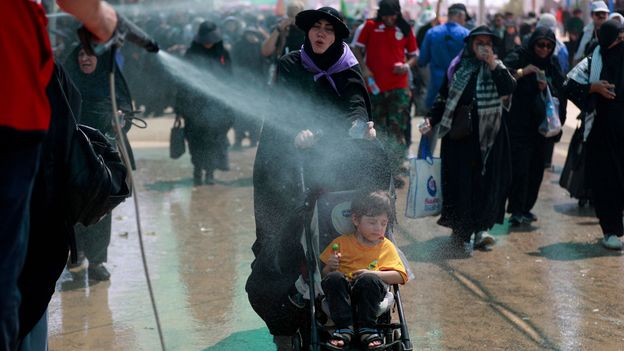Let's see if you read all this.Earth will be fine, just gonna be uncomfortable for humans that like 72 degrees Fahrenheit..im gobsmacked sometimes at how easily the evolution of earth and it's tumultous history is tossed aside to foment an uneasy feeling in others.
Have you seen the state of earth lately? It's already not very fine.
That's a common theme with people who do not want to accept a truth that is uncomfortable.
It will be fine, it will just be a little different. Lake Michigan will be a tropical zone. What's wrong with that?
Well it was almost 110 today where I live. In an area with human history of roughly 1 million years. Which region are you referring to which is on average 72 and will shift slightly? I'd like to know so that I can calculate how much hotter my region will be.
Are you aware of how desertification takes place? The Sahara was once a temperate zone as well, natural changes to the climate of Earth caused it to become a desert.
Now the issue is that we are seeing changes that could be compared to natural phenomena, only on a very rapid scale and directly correlated to actions of humans. Please show me how that is wrong. I really do want it to be wrong.
There was a massive concentration of CO2 in the atmosphere of earth for a very long period of time, a time when it was uninhabitable for humans. Plants came along and converted most of it to O2. So we are re-releasing that trapped carbon from the bodies of said plants (oil) into the atmosphere via combustion which forms CO2 again, at the same time that only 20% of old-growth forests remain and 48% of any forests remain covering land that they once did. This number is dwindling. I'm sure you can figure it out, I don't need to explain where this is going. Anyone who is not being intentionally obtuse can get to where this leads. Yes, the earth evolves, but this is the first time in its history when one species can come along and flip natural processes on their head.
Are you aware that even slight shifts in temperature can cause large-scale changes in weather systems? That the melting of the ice-caps can cause entire massive ocean-currents to stop?
What happens to the entire ecosystems reliant upon those? Doesn't matter? We have ravaged our forests, and are causing the ocean habitats to wildly change, which is an issue as the other way that CO2 is converted into O2 is by ocean flora.
Are you aware that the majority of CO2 released into the atmosphere is absorbed by the oceans and that it causes acidification of ocean water? Have you been in the water in the tropics lately? Care to explain the massive massive coral graveyards where they were flourishing 30 years ago? It's apparently not caused by acidification and temperature increase, because those are from human-caused CO2 release and the influence that it has on the earth. So I would love if you could clear the mystery for everyone.
When you speak as you are, it is important to let everyone know that you are speaking from feeling or intuition, and if you are not, it is important to provide some kind of corroborating evidence, so that casual readers do not read your comment and make the mistake of thinking that you are speaking as an authority on the matter. If you know of someone who is and shares your view, please link and defer to them.
Last edited:




